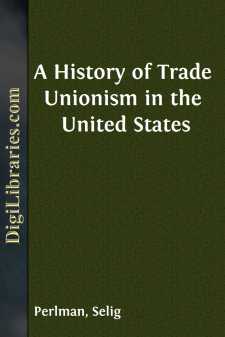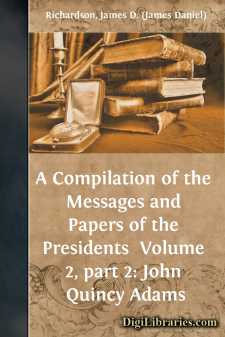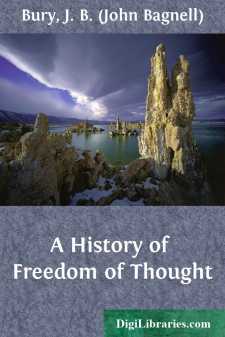History
- Africa 30
- Americas (North Central South West Indies) 50
- Ancient 68
- Asia 58
- Australia & New Zealand 8
- Canada 41
- Caribbean & West Indies 1
- Civilization 20
- Eastern Europe 12
- Europe 310
- Expeditions & Discoveries 60
- General 77
- Historical Geography 1
- Jewish 9
- Latin America 3
- Medieval 8
- Middle East 13
- Military 248
- Revolutionary 8
- Study & Teaching 5
- United States 353
- Western Europe 56
- World 13
History Books
Sort by:
by:
John Hossack
SPEECH OF JOHN HOSSACK. [At the February term of the U.S. District Court for the Northern District of Illinois, JOHN HOSSACK and JOSEPH STOUT, of Ottawa, were convicted of having aided in rescuing a fugitive slave from the custody of the U.S. Deputy Marshal at Ottawa, Oct. 20, 1859, and sentenced by Judge Drummond to pay a fine of one hundred dollars, and be imprisoned ten days. Mr. HOSSACK is a...
more...
by:
Selig Perlman
CHAPTER 1 (1) Early Beginnings, to 1827 The customary chronology records the first American labor strike in 1741. In that year the New York bakers went out on strike. A closer analysis discloses, however, that this outbreak was a protest of master bakers against a municipal regulation of the price of bread, not a wage earners' strike against employers. The earliest genuine labor strike in America...
more...
THE PROTESTANTS. Where changes are about to take place of great and enduring moment, a kind of prologue, on a small scale, sometimes anticipates the true opening of the drama; like the first drops which give notice of the coming storm, or as if the shadows of the reality were projected forwards into the future, and imitated in dumb show the movements of the real actors in the story.Prelude to the...
more...
JOHN QUINCY ADAMS John Quincy Adams, sixth President of the United States, eldest son of John Adams, second President, was born at Braintree, Mass., July 11, 1767. He enjoyed peculiar and rare advantages for education. In childhood he was instructed by his mother, a granddaughter of Colonel John Quincy, and a woman of superior talents. In 1778, when only 11 years old, he accompanied his father to...
more...
CHAPTER I COMMUNISTIC FARMING.—GROWTH OF THE MANOR.—EARLY PRICES.—THE ORGANIZATION AND AGRICULTURE OF THE MANOR When the early bands of English invaders came over to take Britain from its Celtic owners, it is almost certain that the soil was held by groups and not by individuals, and as this was the practice of the conquerors also they readily fell in with the system they found. These English,...
more...
CHAPTER I FREEDOM OF THOUGHT AND THE FORCES AGAINST IT IT is a common saying that thought is free. A man can never be hindered from thinking whatever he chooses so long as he conceals what he thinks. The working of his mind is limited only by the bounds of his experience and the power of his imagination. But this natural liberty of private thinking is of little value. It is unsatisfactory and even...
more...
I.MILITARY PRISONERS. The cases of bad treatment of prisoners in Germany have been made known very widely. No one, I imagine, can wish to defend bad treatment of prisoners anywhere (even of criminal prisoners), and such a horrible state of things as that of Wittenberg during the typhus epidemic is a disgrace to human nature. But Mr. Lithgow Osborne says: “My whole impression of the camp authorities...
more...
by:
George D. Wolf
Preface In an Age when man's horizons are constantly being widened to include hitherto little-known or non-existent countries, and even other planets and outer space, there is still much to be said for the oft-neglected study of man in his more immediate environs. Intrigued with the historical tale of the "Fair Play settlers" of the West Branch Valley of the Susquehanna River and...
more...
APOLOGY. Fifty years ago! Gracious me! It makes me think of my age to talk of it. Yes, just fifty years ago was enacted the greatest tragedy the world ever saw, THE CIVIL WAR. I entered the service at twenty and one-half years of age and served three and one-half years. At different times I have told of some of my experiences, which seemed to interest. Sometimes I have talked to literary men, story...
more...
INTRODUCTORY REMARKS. The conflict known in America as the French and Indian War, and in Europe as the Seven Years' War, originated in disputes between the French and English colonists, in the New World, concerning territorial limits. For a century the colonies of the two nations had been gradually expanding and increasing in importance. The English, more than a million in number, occupied the...
more...











